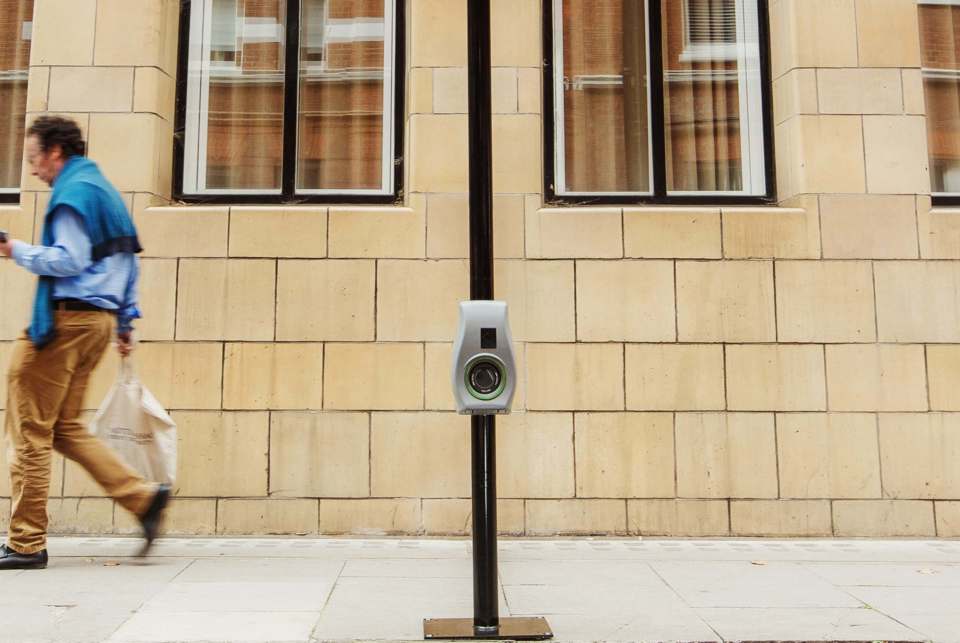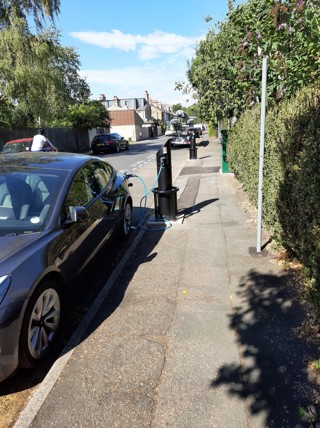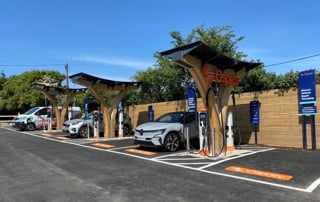Two-thirds of public on-street charge points paid for through a Government grant have been installed in London, new figures from the Department for Transport (DfT) show.
Councils can apply for help installing on-street residential charging devices for electric vehicles (EVs) through the On-Street Residential Chargepoint Scheme (ORCS).
It is available to all UK local authorities to fund up to 60% of the capital costs of installing on-street residential charging devices.
The aim is to ensure that those without private off-street parking are able to access reliable and affordable charging infrastructure.
Until April 1 2022, the scheme covered up to 75% of the capital costs of installing on-street residential charging devices.
New figures, published today (Wednesday, December 14), show that, up to October 1, the Government had paid £11.7 million through the grant, helping to install 3,281 public charging devices across 99 councils, since it was established in 2017.
An additional 312 on-street devices were recorded as installed in the previous three months.
Of the councils that have already completed installations, 36 have had further funding awarded to install a further 5,652 charging devices with a grant value of £15.1m.
A further 83 local authorities have also been awarded grant funding worth £24m to provide 4,603 on-street public charging devices with their installations yet to be completed.
However, the number of Government funded charge points in London far outweigh the rest of the country, accounting for 66% of all ORCS installations.
The majority of these are installed within the London Borough of Hammersmith and Fulham, with 2,500 charging devices.
Separate research, published recently, showed that UK councils are set to install more than 16,500 electric vehicle charging stations over the next 12 months, doubling the number of public chargers currently installed.
The research, conducted by British Gas under a Freedom of Information (FOI) request, revealed that local authorities have installed 16,680 EV charging points to date, with a further 16,563 planned to be installed over the next 12 months.
It showed that local authority owned EV charging capacity is set to more than double in five regions and nations across the UK.
London reported the highest uplift in charger numbers (101% increase from 7,848 to 15,753) followed the East of England (131% increase from 974 to 2,254), the North-West (450% increase from 375 to 2,064), the South-West (172% increase from 533 to 1,455) and Wales (101% increase from 394 to 793).
A smaller uplift in charge point installations is expected from councils across the South-East (98% increase from 1,686 to 3,345), Yorkshire (94% increase from 478 to 931), the North-East (83% increase from 424 to 780), the Midlands (67% increase from 1,180 to 2937), and Scotland (40% increase from 2,137 to 3,039).
Despite the planned increases in capacity, the data revealed 24 councils currently have no plans to install EV charging stations in the next 12 months, the majority (70%) of which are located outside of London and the South-East.
As announced in the UK EV Infrastructure Strategy, the public charge point grant scheme will continue up to April 2023 with a budget of £20m.
Furthermore, an additional £10m was announced in August 2022 for funding, bringing this year’s ORCS funding to £30m to help maintain ongoing installations.
The DfT has also published new figures for grants received by local authorities for workplace charge point devices – read more here.
New data for DfT funding of domestic charge points has also been published today – read more here.






















Login to comment
Comments
No comments have been made yet.